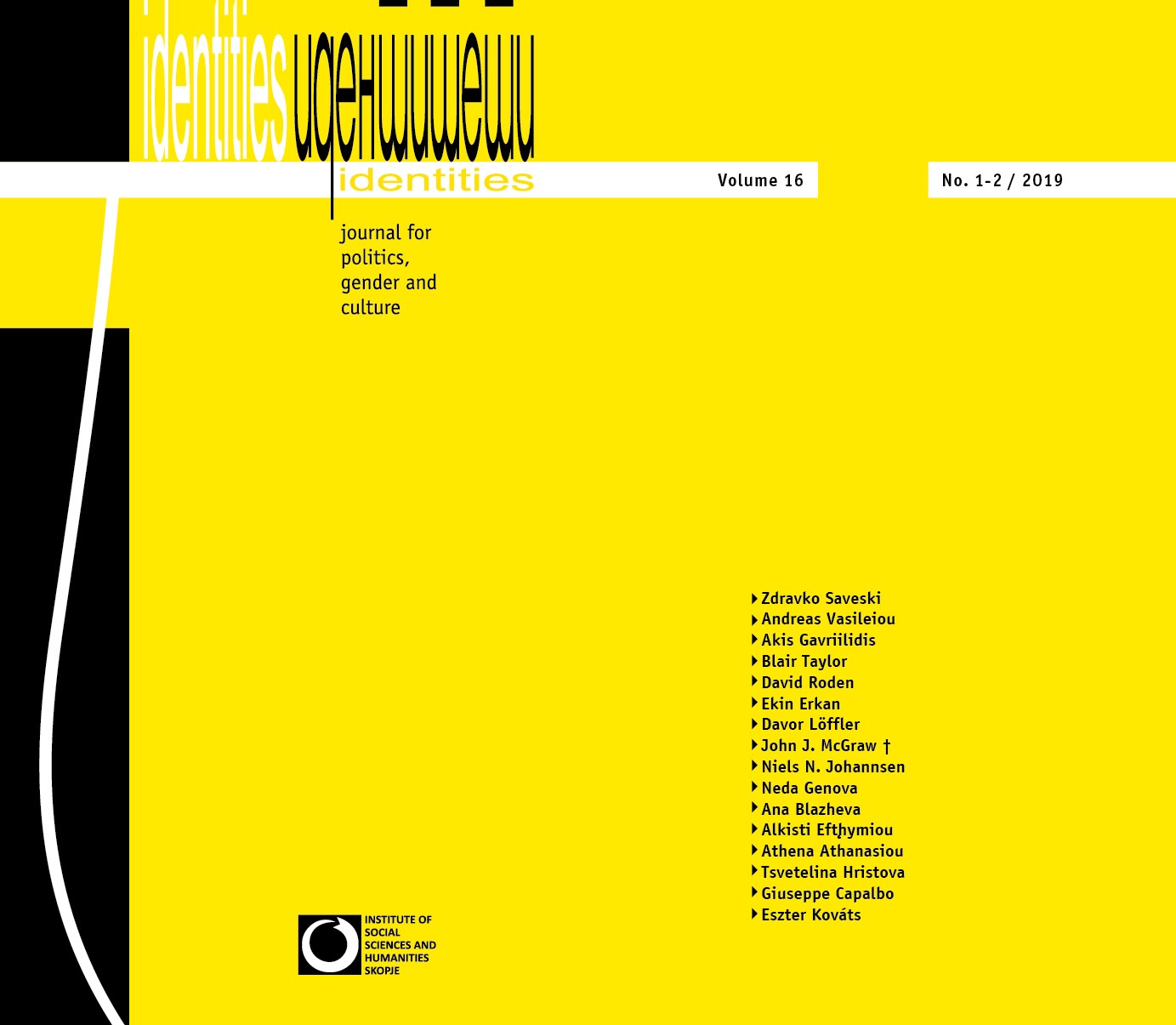Alkisti Efthymiou in Conversation with Athena Athanasiou: Spectral Publics and Antifascist Eventualities
DOI:
https://doi.org/10.51151/identities.v16i1-2.376Keywords:
Women in Black, public mourning, memory, political agency, relationality, social movementsAbstract
This text is a conversation between Athena Athanasiou and Alkisti Efthymiou, drawing from Athena Athanasiou’s new book, Agonistic Mourning: Political Dissidence and the Women in Black (Edinburgh University Press, 2017). The conversation discusses the critical potency of collective subjectivities such as the Women in Black and expands on issues that include political agency, vulnerability in resistance, spacing appearance, performing public mourning, or the traveling of social movements, associating them with contemporary feminist and antifascist urgencies. Central to the text is the concept of non-sovereign agonism, a form of political agency that addresses (or takes into account) the dispossessed quality of subjectivity and pays attention to the relationality through which we are constituted as subjects.
Author(s): Alkisti Efthymiou and Athena Athanasiou
Title (English): Alkisti Efthymiou in Conversation with Athena Athanasiou: Spectral Publics and Antifascist Eventualities
Journal Reference: Identities: Journal for Politics, Gender and Culture, Vol. 16, No. 1-2 (Summer - Winter 2019)
Publisher: Institute of Social Sciences and Humanities - Skopje
Page Range: 102-113
Page Count: 12
Citation (English): Alkisti Efthymiou and Athena Athanasiou, “Alkisti Efthymiou in Conversation with Athena Athanasiou: Spectral Publics and Antifascist Eventualities,” Identities: Journal for Politics, Gender and Culture, Vol. 16, No. 1-2 (Summer - Winter 2019): 102-113.

Downloads
Published
How to Cite
Issue
Section
License
Identities is published under the following license: Creative Commons Attribution-NonCommercial-NoDerivatives 4.0 International (CC BY-NC-ND 4.0). Under this license, users of our content must give appropriate credit to authors and source as well as indicate if changes were made, cannot be used for commercial purposes, and, in the instance that it is built upon or transformed, may not be distributed. For Identities, the copyrights allow the audience to download, reprint, quote in length and/or copy articles published by Identities so long as the authors and source are cited. For more information on our license, see the following: https://creativecommons.org/licenses/by-nc-nd/4.0.








